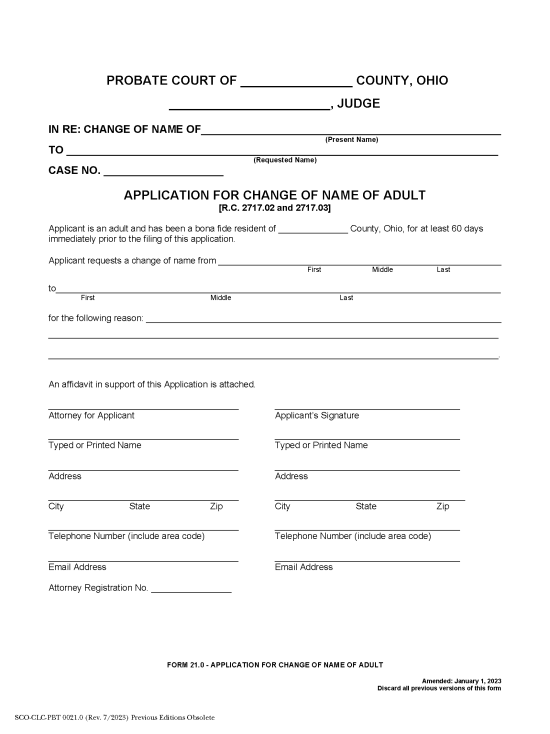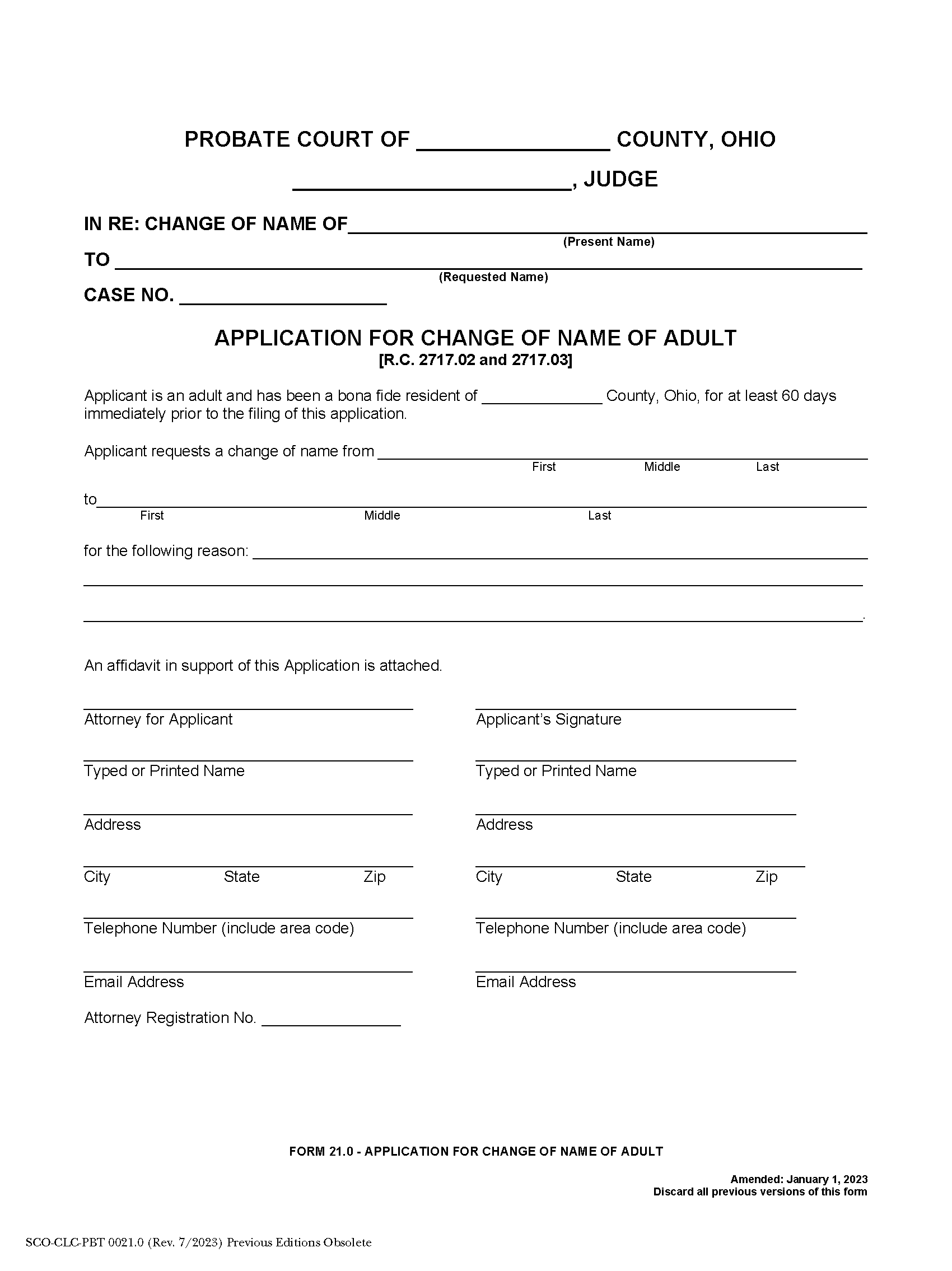Eligibility Requirements
- Aged 18 or older
- Reside in the county where filing for at least 60 days
- Cannot be the debtor in a pending bankruptcy
- Cannot have a conviction, guilty plea, or adjudication for identity fraud, sexual offense, or crime against a minor
- Must have parental consent (if applicant is a minor)
How to Legally Change a Name in Ohio
Step 1 – Paperwork
Before filing with the probate court, the name change applicant must ensure they’ve prepared each of the following documents:
- Application for Change of Name of Adult (Form 21.0)
- Affidavit in Support of Application for Change of Name of Adult (Form 21.01)[1]
- Signature must be notarized
- Release for Criminal Background Check (Form 21.14)
- Certified copy of birth certificate
- Proof of residency
- Copy of government-issued photo ID
Step 2 – Court Filing
Documents must be submitted to the probate court in the county where the applicant has lived for at least 60 days.[2] Court fees vary by county, but filers can expect to pay between $100 and $150. Some courts may also require payment for a criminal background check.
Step 3 – Publication (if necessary)
It’s up to the court to decide whether a hearing needs to take place.[3] If a hearing is scheduled, the court may require the applicant to publish a Notice of Hearing on Change of Name (Form 21.5) in a local newspaper at least 30 days before the hearing date.
Should publication be necessary, the applicant must ensure the court receives proof of publication before the hearing.
Step 4 – Court Hearing (if necessary)
If a hearing is called, the applicant must attend and present the court with copies of their name change paperwork and respond to any questions the judge or magistrate may have.
Step 5 – Approval
If the applicant receives approval to change their name, the judge or magistrate will sign a Judgment Entry – Change of Name of Adult (Form 21.1) to officially authorize the request.
Marriage and Divorce
Individuals who are getting married do not need to undergo the standard name change process in order to adopt their spouse’s surname. Instead, their marriage certificate serves as proof and can be used to obtain a new driver’s license, passport, and other forms of identification.
Either spouse in a divorce case may ask the court to restore their surname used before marriage. Once the divorce is finalized, the divorce decree serves as the authorization needed to revert to the prior name.[4]
Resources
Forms
- Application for Change of Name of Adult (Form 21.0)
- Affidavit in Support of Application for Change of Name of Adult (Form 21.01)
- Release for Criminal Background Check (Form 21.14)
- Notice of Hearing on Change of Name (Form 21.5)
- Judgment Entry – Change of Name of Adult (Form 21.1)
Links

